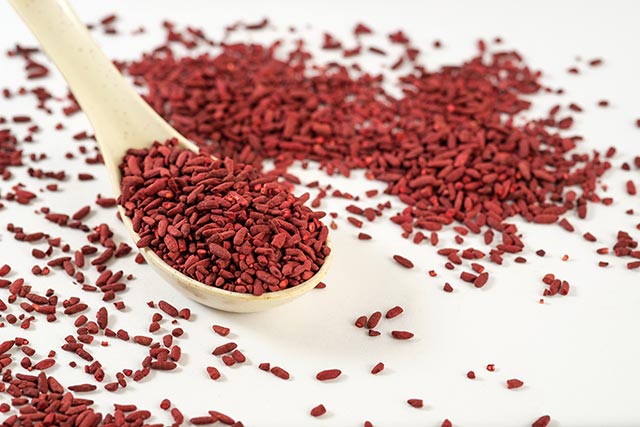Study: Male CrossFit athletes benefit more from the keto diet compared to females
11/19/2019 / By Edsel Cook

Both men and women benefit from taking up the ketogenic diet. However, a Polish study of CrossFit-trained athletes showed that male participants enjoy considerable boosts in energy metabolism while female counterparts barely display any improvements.
The ketogenic or “keto” diet gets most of its calories from fat. It has plenty of protein but almost no carbohydrates.
First developed in the 1930s as a possible treatment for epileptic patients, the keto diet is a popular weight loss diet. Studies have shown that it might have positive impacts on diabetes, high blood pressure, and insulin resistance.
Furthermore, keto diets and related products often contain coconut oil. The natural ingredient contains many ketones that exert protective effects on the brain.
While the keto diet encourages the consumption of plenty of fats, it also drastically cuts back on glucose intake. The lack of sugar lowers blood glucose levels, forcing the body to burn fat for energy.
Since it metabolizes high amounts of lipids, the body builds up far less fat, making the keto diet a great way to lose weight and manage metabolic disorders. (Related: Following the keto diet may improve fertility, preliminary findings show.)
Evaluating the effects of the keto diet on CrossFit athletes
Athletes and sports nutrition experts became interested in the keto diet for its performance-boosting effects. It pulls this off by adjusting the signals between cells.
“Activation of these signaling pathways may lead to a significant increase in the physical and exercise capacity, by stimulating, e.g., mitochondrial biogenesis, capillarization, regeneration processes, and especially, effective fat energy substrate utilization,” explained Polish researchers from the Poznan University of Life Sciences (PULS).
Sponsored: NEW Biostructured Silver First Aid Gel created by the Health Ranger combines three types of silver (ionic silver, colloidal silver, biostructured silver) with seven potent botanicals (rosemary, oregano, cinnamon and more) to create a breakthrough first aid silver gel. Over 50 ppm silver, verified via ICP-MS lab analysis. Made from 100% Texas rain water and 70% solar power. Zero chemical preservatives, fragrances or emulsifiers. See full details here.
Their experiment involved CrossFit trainees whose ages ranged from 18 to 40. The participants actively trained at least four times weekly.
The CrossFit exercise regimen features brief but rapid bursts of activity with high outputs of power. Trainees lift weights and perform plyometric exercises.
The researchers measured the baseline of the participants at the start of the study. They performed an incremental cycling test and took samples of blood and urine to determine any shift in the source of energy.
Next, the participants switched to a ketogenic diet for four weeks. The new dietary plan provided the same caloric intake of their previous one.
Protein came from dairy, fish, and meat that made up 15 percent of the diet. Butter, coconut oil, olive oil, rapeseed oil, and nuts provided the fat that comprised 75 percent. The remainder was carbohydrates.
The researchers performed the same tests on the participants while the latter was on the keto diet.
Men seem to benefit more easily from the keto diet than women
During the study, 20 percent of the participants dropped out because of the ketogenic diet. While they did not experience discomfort in their gut, they pleaded drowsiness and peevishness.
Another 10 percent left the experiment due to injuries sustained during the strenuous CrossFit exercises. But the remaining participants displayed clear signs that their bodies changed the source of their energy from glucose to fat in varying degrees.
However, the Poznan researchers reported that the statistically significant changes only appeared in male participants. The men displayed considerable shifts in all ranges of maximum oxygen uptake (VO2 max). They began burning fat in any type of exercise, regardless of the intensity.
In contrast, female participants required at least 65 percent of VO2 max before they displayed noticeable changes in energy utilization. They needed to hit moderately intense levels of physical exercise before their bodies started burning fat instead of glucose.
“The presented data on metabolic adaptation to KD [ketogenic diet] seems to indicate that CrossFit athletes may effectively adapt to training at wide, but gender-dependent range of exercise intensities,” they remarked.
Read up on other news and studies on the effects of weight loss diets at Slender.news.
Sources include:
Tagged Under: #nutrition, burning fat, coconut oil, CrossFit, exercise, fight obesity, fitness, healthy diets, keto diet, ketogenic diet, ketones, research, slender, weight loss



















